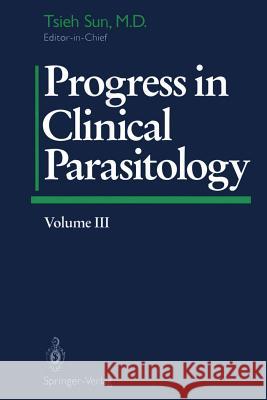Progress in Clinical Parasitology: Volume III » książka
Progress in Clinical Parasitology: Volume III
ISBN-13: 9781461276463 / Angielski / Miękka / 2011 / 209 str.
This volume, now the third in a series, presents a more hetero geneous content than previous issues. It covers two previously rare but now common opportunistic infections in the United States, a common parasitic disease in Japan, exciting but difficult problems in developing a malarial vaccine, a study exemplifying the role of T lymphocytes in parasitic infections, and a fascinating review of the relationship between the schistosomes and their molluscan hosts. The first chapter covers cryptosporidiosis, which has become a household name since the outbreak of the acquired immunodeficien cy syndrome (AIDS). However, infection is now recognized to occur widely in immunocompetent individuals, with clustering of infection among veterinary students, laboratory workers, children in day care centers, and family members. It can also be the cause of traveler's di arrhea and nosocomial infection. Indeed, Cryptosporidium has be come recognized as the leading protozoal cause of diarrhea world wide. This chapter provides a concise, yet comprehensive, review on aspects of epidemiology, microbiology, clinical features, diagnosis, and treatment of this important disease. Recent in vitro studies of Cryptosporidium, conducted in Dr. Flanigan's and other laboratories, are described. They complement the extensive clincial experience of Dr. Soave, who summarizes her many articles in this field. The second chapter describes another common opportunistic infec tion among AIDS patients, toxoplasmosis. This disease differs from cryptosporidiosis in that it was recognized as a common infection in immunocompetent individuals even before the AIDS outbreak."











